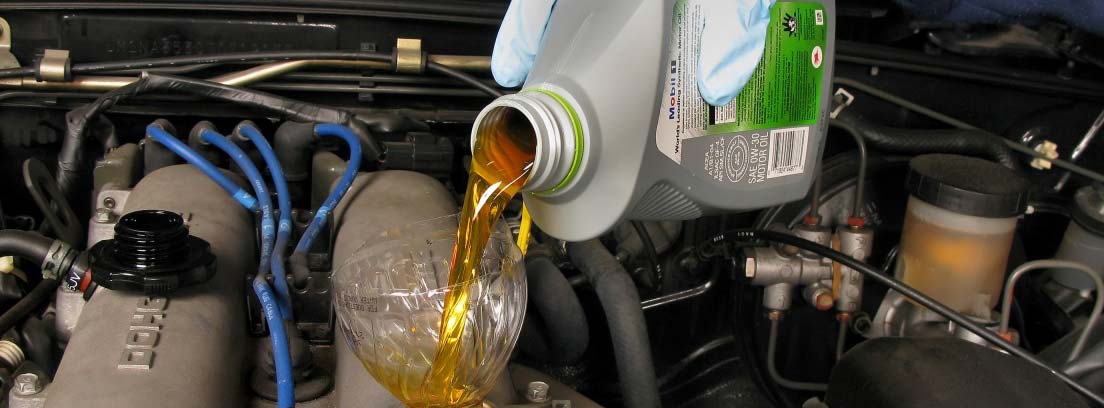
All these elements influence its longer or shorter duration and benefit the engine if optimal.
Engine oil specifications
One of the key points to know what oil your car should have is that the fluid specifications are equal to or higher than those recommended by the manufacturer.
These specifications follow the API ( American Petroleum Institute ) classification, the ACEA ( European Automobile Manufacturers Association ) classification, or both simultaneously.
API Classification
There is a difference between gasoline (letter S) and diesel (letter C), along with a second letter that goes from A onwards and indicates greater or lesser quality.
For example, if in the maintenance book we see API SH , we can choose an SJ oil without problems.
ACEA Classification
A letter is indicated first for gasoline (A) or diesel (B), followed by a number; the higher it is, the higher the quality.
For example, if the book indicates ACEA B3 , we can go up to B4.
Mineral or synthetic?
Oils can be divided into two groups:
- Minerals : based on refined petroleum.
- Synthetics : they undergo a special treatment that protects the engine and maintains its stable properties for longer.
In addition, there is a third type in which mineral and synthetic oil bases are mixed. The result is one with characteristics intermediate between the two main ones.
It is best to use synthetic oil , as it offers greater protection for a difference of approximately 25 euros in each oil change.
Viscosity: recommended by the manufacturer
Viscosity is the scale to measure the ability of molecules to flow and resist changes in temperature.
If we want an oil that perfectly fulfills its purpose, it must be fluid at low temperatures (to adhere to metal surfaces when the engine is cold) and, at the same time, it must retain sufficient viscosity (so that it does not drain when the engine is hot).
On oil containers, you will find two figures that indicate their viscosity. The first refers to a cold measurement (at –18°C) and the second when hot (at 100°C).
Cold measurement
If the maintenance book indicates a 20-40 oil, for example, the first figure can be lowered (10-40, 5-40 or 0-40) to obtain an oil with better access to all engine corners when starting. cold and improve consumption. It is not advisable to raise it, as the oil will not flow fast enough when cold.
Hot measurement
It refers to the hot viscosity and it is advisable not to increase it compared to what the manufacturer indicates. However, it can be reduced , although not to such an extent that the oil is too fluid when hot. This could cause problems when accelerating hard and demanding maximum power from the engine.
What oil to put in a diesel with many kilometers?
High-mileage diesel engine oils contain additives and substances that help reduce internal and external leaks. To choose the most suitable one, several factors must be taken into account:
Goo

A diesel engine with high mileage requires an oil with higher viscosity . It must be taken into account that the repetitive movements of the engine cylinders cause some wear over time.
To compensate for this, a thicker oil should be used. For example, if the car has more than 100,000 kilometers, a good option is to choose a 10w40 synthetic oil.
Additives
Compared to gasoline, diesel engines generate much more soot and other combustion byproducts that accumulate in the crankcase, making it difficult for oil to access.
Therefore, to mitigate these effects, you must look for an oil with a greater amount of additives per volume. These additives will neutralize acids and clean engine sludge.
When the engine has many kilometers, the ideal oil is the one that has a greater load of zinc dialkyldithiophosphate, the additive par excellence for preventing wear, oxidation, and corrosion in the engine.
Diesel engine catalytic converters (the part responsible for converting toxic emissions from the engine into stable byproducts before entering the atmosphere) are designed to deal with problems arising from combustion byproducts so that They can be used in this type of engines without problems.
With these tips you will know which oil to choose so your engine has a long life.
Leave a Reply